Office of Community Outreach and Engagement
Programs and Services
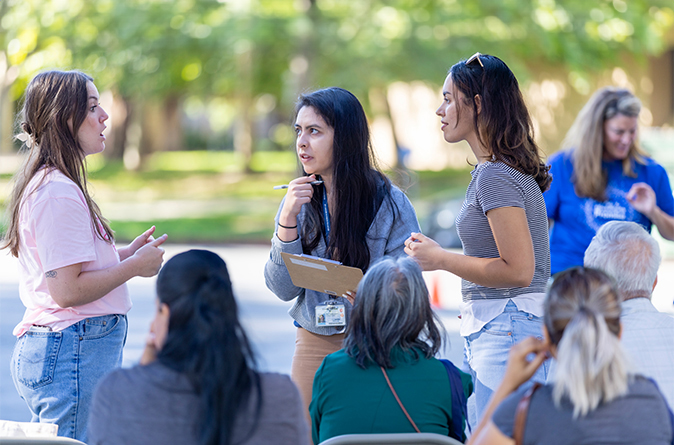
Our Office of Community Outreach and Engagement (COE) is committed to improving cancer outcomes for all American populations. In collaboration with community partners across northern and central California, COE prioritizes its efforts to implement community and health system programs to better understand and address local cancer burdens.
If you have any questions about our programs or services, please don't hesitate to contact us.
Community Engagement
The Office of Community Outreach and Engagement (COE) fosters collaboration between UC Davis Comprehensive Cancer Center and local communities to address local cancer burdens. Through partnerships with community clinics, nonprofits, coalitions, and health systems, COE promotes two-way communication and delivers programs tailored to community needs.
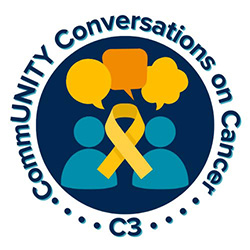
The Office of Community Outreach and Engagement prioritizes cancer education in the communities it serves.
"Community Conversations on Cancer (C3)" aim to collaborate with community based organizations to identify and address local issues that impact cancer in the communities we both serve. C3s help to improve and tailor our outreach and education programming to the unique needs of each community.
Staff conduct cancer 101 presentations tailored to educate different audiences about various types of cancers prevalent in local communities. These sessions cover incidence and mortality rates, risk factors, symptoms, prevention methods, and treatment options, aiming to empower community members with knowledge to increase cancer prevention through screenings and healthy lifestyle choices.
To request a Cancer 101 presentation, contact us
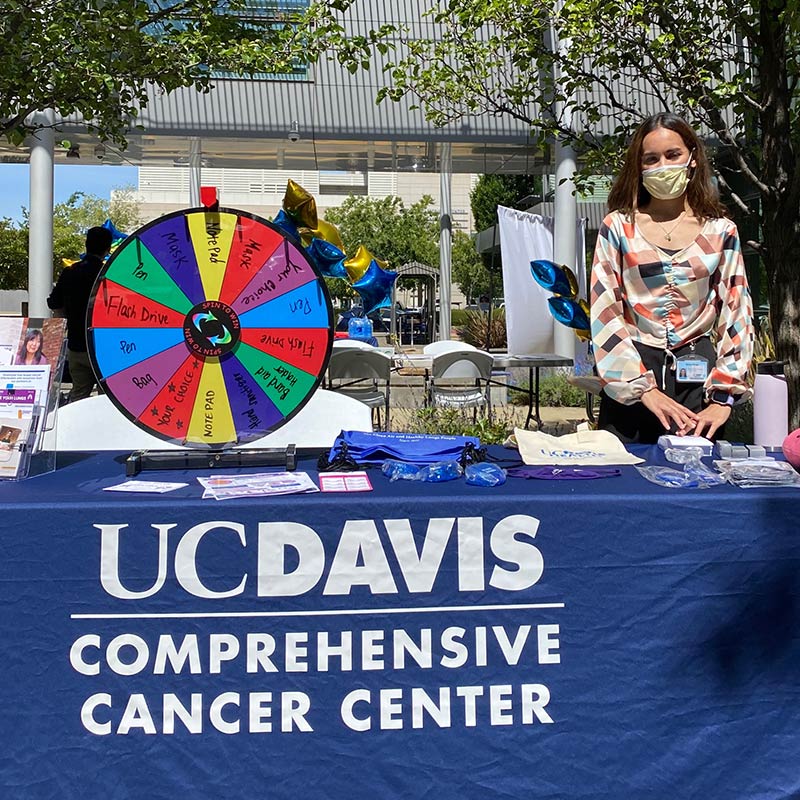
Clinical trial navigation helps coordinate and recruit patients into therapeutic and non-therapeutic clinical trials. As part of this program, we have a clinical trials navigator who conducts community outreach within the area served by the cancer center to educate community members and help individuals learn about clinical trials resources.
Our team also connects potential participants with clinical research coordinators and research investigators.
Clinical Trials Task Force
Clinical Trials Task Force meetings are held quarterly and assist research projects to improve recruitment and enrollment.
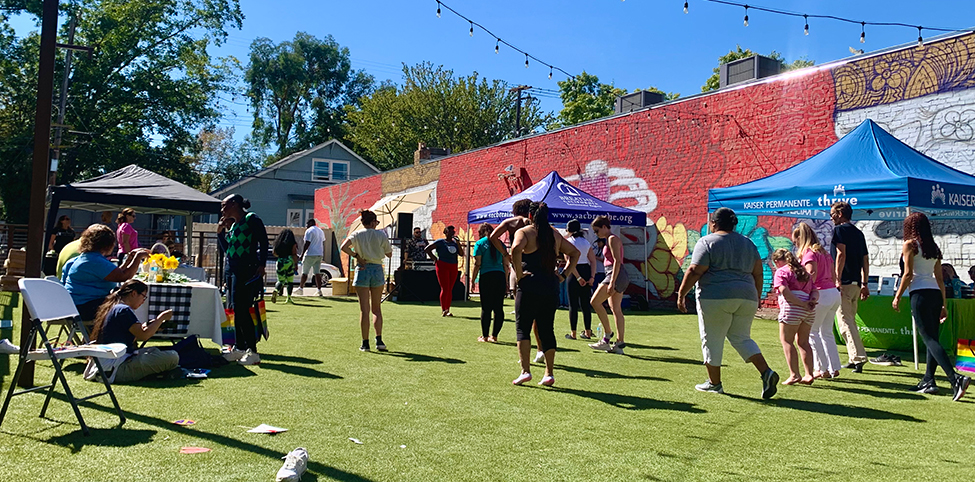

Sacramento Lung Health Coalition: Love Your Lungs (LYL) provides evidence-based lung health education and resources to the community. It strives to provide accurate information to address questions centered around lung health topics such as lung cancer screening, smoking cessation, and survivorship.
LYL hosts events with community partners to provide up-to-date lung health and cancer information and resources while strengthening the connection with the community.
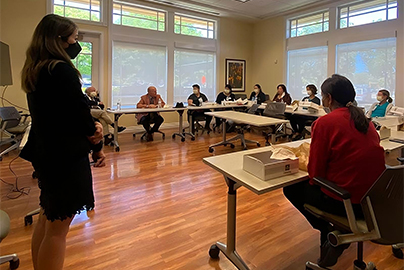
COE coordinators provide training for health care staff to become subject matter experts who, in turn, are equipped with the knowledge to teach patients or community members. The goal is to empower people in the community with tools fostering culturally appropriate cancer education that will help spread cancer awareness and promote regular cancer screenings.
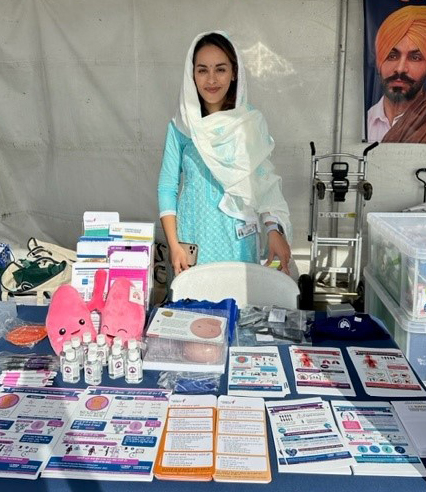
Our clinical trials education program aims to empower patients with the knowledge necessary to make informed decisions about clinical trials participation. We offer community-tested, multimedia clinical trials educational materials in a variety of languages.
Broadening participation in clinical trials helps improve cancer care for all populations. Different people may experience the same disease differently, so it is important to include people with a variety of lived experiences and backgrounds.
Efforts to Reduce Viruses That Cause Cancer
Some viruses can lead to cancer. Fortunately, the development of certain vaccines helps to prevent many of these cancers. COE works to develop and implement interventions to impact of the cancer risks associated with the human papillomavirus (HPV) and hepatitis B virus (HBV), while promoting HPV and HBV vaccinations as forms of cancer prevention.
HPV, the most common sexually transmitted disease in the United States, causes genital warts and more than 90% of cervical cancer cases. It is also tied to half a dozen other cancers. That’s where the HPV vaccine comes in as an effective cancer prevention tool. COE engages in projects that encourages vaccination against HPV.

Our Study: accelerating Uptake of the HPV Vaccine among Rural & Native American Adolescents: A Collaboration between the UC Davis Comprehensive Cancer Center & Northern Valley Indian Health (NVIH).
Purpose: Develop, implement and evaluate a multilevel intervention that will increase uptake of the HPV vaccine among rural and Native American adolescents served at the NVIH Willows Clinic located in Glenn County. For more information, please see our published abstract
HPV Public Health Strategies
We joined the Center for Health Law and Policy Innovation of Harvard Law School to put out a new resource called the HPV Vaccine Policy Landscape, Public Health Strategies. The guidebook highlights the roles that state policymakers, educational institutions, and health care providers can play in increasing HPV vaccination rates and navigating policy landscape effectively. For more information, please see the report
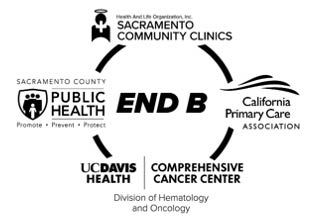
The Hepatitis B Virus (HBV) is one of the leading causes of liver cancer worldwide, but there is a vaccine that provides more than 90% protection. The cancer center is working toward eliminating the transmission of HBV through the Ending the Transmission of the Hepatitis B Virus or the END B program improves the lives of those living with chronic HBV and promotes HBV vaccinations to spare the next generation.

